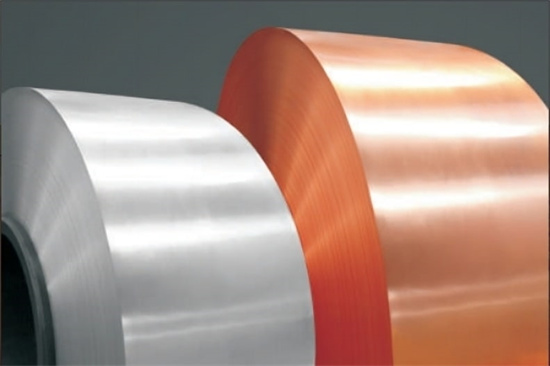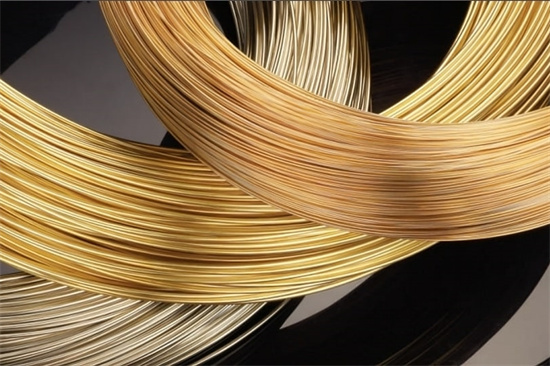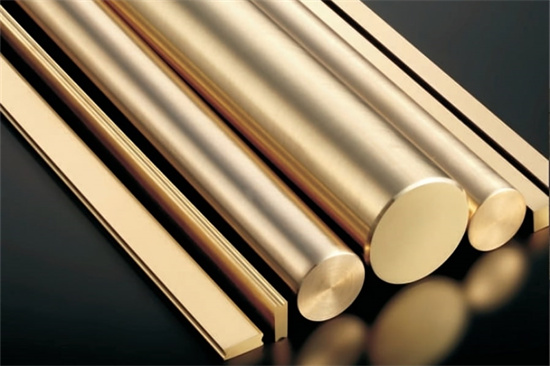


Copper Chromium Zirconium Alloy Strips: Unmatched Strength and Durability
Low MOQ
Provide low minimum order quantity to meet different needs.
OEM & ODM
Provide customized products and design services to meet unique customer needs.
Adequate Stock
Ensure fast order processing and provide reliable and efficient service.
Customer Satisfaction
Provide high quality products with customer satisfaction at the core.
share this article
Table of Contents
In today’s manufacturing and engineering world, performance and precision are no longer just buzzwords—they’re requirements. Being able to deliver durable, reliable, and high-performing materials is more critical than ever before. That’s where Copper Chromium Zirconium Alloy Strips come into play. These strips are the backbone of numerous high-performance applications, offering an ideal combination of strength, conductivity, and resistance to wear and heat.
Whether you’re in the automotive, aerospace, or electronics industry, understanding the advantages of Copper Chromium Zirconium Alloy Strips will give you insights into why this material is quickly becoming the go-to choice for many manufacturers. In this comprehensive guide, we will dive deep into the composition, properties, applications, specifications, and pricing of these high-precision alloy strips.
Ready to find out why Copper Chromium Zirconium Alloy Strips might be the perfect material for your next project? Let’s get started.
Overview of Copper Chromium Zirconium Alloy Strips
What Are Copper Chromium Zirconium Alloy Strips?
Copper Chromium Zirconium Alloy Strips (CuCrZr) are a type of copper alloy that incorporates small amounts of chromium and zirconium to improve the strength, thermal conductivity, and wear resistance of copper. The result? A material that can withstand extreme temperatures and high current loads while maintaining excellent mechanical properties.
The addition of chromium enhances the alloy’s tensile strength and resistance to softening at high temperatures, while zirconium helps refine the grain structure, promoting strength and ductility. Together, these elements make Copper Chromium Zirconium Alloy Strips a preferred material for high-stress applications in demanding environments.
Key Characteristics of Copper Chromium Zirconium Alloy Strips
- High conductivity: Retains much of copper’s natural electrical and thermal conductivity.
- Superior strength: The alloying elements significantly improve the material’s strength compared to pure copper.
- Excellent wear resistance: Withstands high friction and mechanical stress.
- Thermal stability: Can maintain its mechanical properties at elevated temperatures, making it ideal for heat-sensitive applications.
- Corrosion resistance: Offers good resistance to oxidation and corrosion, even in harsh environments.
Composition and Properties of Copper Chromium Zirconium Alloy Strips
The unique properties of Copper Chromium Zirconium Alloy Strips lie in their chemical composition. The careful balance of chromium and zirconium in the copper matrix creates an alloy that retains the conductivity of copper but significantly enhances its strength and durability.
Composition of Copper Chromium Zirconium Alloy Strips
| Element | Percentage (%) |
|---|---|
| Copper (Cu) | 98.5 – 99.5 |
| Chromium (Cr) | 0.5 – 1.2 |
| Zirconium (Zr) | 0.03 – 0.25 |
| Other Elements | < 0.2 |
Properties and Characteristics of Copper Chromium Zirconium Alloy Strips
| Property | Value |
|---|---|
| Tensile Strength | 400 – 500 MPa |
| Yield Strength | 350 – 450 MPa |
| Hardness | 120 – 150 HV |
| Electrical Conductivity | 75 – 85% IACS |
| Thermal Conductivity | 320 – 340 W/m·K |
| Heat Resistance | Up to 500°C |
| Elongation | 10 – 15% |
Applications of Copper Chromium Zirconium Alloy Strips
Copper Chromium Zirconium Alloy Strips are used in a wide range of applications due to their versatility. Let’s take a look at the industries and products where these high-performance strips shine the most.
Common Applications of Copper Chromium Zirconium Alloy Strips
| Industry | Typical Applications |
|---|---|
| Electronics | Contact arms, conductive springs, connectors |
| Automotive | Battery terminals, electric vehicle components |
| Aerospace | High-temperature connectors, switches |
| Power Generation | Electrical contacts, heat exchangers |
| Welding | Electrode holders, welding tips |
| Industrial Equipment | Machinery components, bushings |
Expanded Application Insights
- Electronics: When it comes to electrical components, Copper Chromium Zirconium Alloy Strips are used in contact arms, conductive springs, and connectors. Their high conductivity combined with strength makes them ideal for devices that require reliable signal transmission under mechanical stress.
- Automotive: With the rise of electric vehicles, these alloy strips are increasingly used for battery terminals and other high-current components. Their ability to withstand high electrical loads and resist wear ensures the longevity of electrical systems in modern cars.
- Aerospace: In aerospace engineering, materials are subject to intense temperatures and mechanical stress. Copper Chromium Zirconium Strips are used in high-temperature connectors and switches where thermal stability and strength are critical.
- Power Generation: For industries that rely on power generation, these strips are used in electrical contacts and heat exchangers, where their high thermal conductivity ensures efficient heat transfer and long-lasting electrical performance.
- Welding: The welding industry relies on Copper Chromium Zirconium Alloy Strips for electrode holders and welding tips. These strips can handle the high heat involved in welding processes without deforming, ensuring precise and consistent welds.
Specifications, Sizes, and Standards for Copper Chromium Zirconium Alloy Strips
When selecting Copper Chromium Zirconium Alloy Strips, it’s essential to consider the available sizes, specifications, and industry standards. These strips come in various thicknesses, widths, and grades to meet the specific demands of different applications.
Common Specifications and Standards for Copper Chromium Zirconium Alloy Strips
| Standard | Description |
|---|---|
| ASTM B465 | Standard specification for Copper Chromium Zirconium alloys in wrought forms |
| EN 12420 | European standard for copper and copper alloy strip for general purposes |
| JIS H3270 | Japanese standard for copper and copper alloy strips |
| DIN 17666 | German standard for wrought copper-chromium-zirconium alloys |
Available Sizes and Grades for Copper Chromium Zirconium Alloy Strips
| Form | Size Range (Thickness x Width) | Grade |
|---|---|---|
| Strip | 0.1 mm – 3.0 mm x 10 mm – 600 mm | C18150, C18200 |
| Sheet | 0.3 mm – 5.0 mm x 100 mm – 1200 mm | C18150, C18200 |
| Coil | 0.1 mm – 2.0 mm x 10 mm – 500 mm | Various grades |
Suppliers and Pricing for Copper Chromium Zirconium Alloy Strips
The cost of Copper Chromium Zirconium Alloy Strips can vary based on several factors, including the grade, dimensions, and order volume. Additionally, fluctuations in the global prices of copper, chromium, and zirconium can influence the overall cost of these materials.
Copper Chromium Zirconium Alloy Strip Suppliers and Pricing
| Supplier | Location | Price Range (per kg) | Lead Time |
|---|---|---|---|
| Aurubis AG | Germany | €20 – €35 | 3-6 weeks |
| Shanghai Metal Corporation | China | $22 – $40 | 4-8 weeks |
| Aviva Metals | USA | $25 – $45 | 2-5 weeks |
| KME Group | Italy | €25 – €38 | 2-4 weeks |
| Mitsubishi Shindoh | Japan | ¥3000 – ¥4500 | 3-7 weeks |
Factors Impacting Pricing
- Grade of the Alloy: Higher-quality grades that contain more chromium and zirconium tend to be more expensive.
- Thickness and Width: Thinner strips generally cost more due to the precision required in their fabrication.
- Order Quantity: Larger orders typically offer bulk discounts, while smaller orders may have a higher per-unit cost.
- Market Conditions: Global prices for copper, chromium, and zirconium can fluctuate, affecting the overall pricing.
Advantages and Limitations of Copper Chromium Zirconium Alloy Strips
While Copper Chromium Zirconium Alloy Strips offer numerous benefits, like any material, they come with their limitations. Understanding these can help you make an informed decision when selecting a material for your project.
Advantages and Limitations of Copper Chromium Zirconium Alloy Strips
| Advantages | Limitations |
|---|---|
| High strength: Ideal for high-stress environments. | Higher cost: More expensive than standard copper strips. |
| Thermal stability: Performs well at elevated temperatures. | Lower conductivity: Not as conductive as pure copper. |
| Excellent wear resistance: Withstands mechanical stress. | Availability: Some grades may have longer lead times. |
| Good machinability: Easy to form and machine into complex shapes. | Limited ductility: Less formable compared to pure copper. |
| Corrosion resistance: Ideal for harsh environments. | Specialized applications: Not suitable for all general-purpose uses. |
Comparing Copper Chromium Zirconium Alloy Strips to Other Copper Alloys
When choosing between Copper Chromium Zirconium Alloy Strips and other copper alloys, it’s essential to understand how they compare in terms of strength, cost, conductivity, and corrosion resistance.
Copper Chromium Zirconium Alloy Strips vs. Other Copper Alloys
| Alloy | Copper Chromium Zirconium Strips | Cu-Be (Beryllium Copper) | Cu-Ni (Copper-Nickel) | Brass (Cu-Zn) |
|---|---|---|---|---|
| Strength | High | Very High | Medium | Low |
| Electrical Conductivity | 75-85% IACS | 20-60% IACS | 5-15% IACS | 25-30% IACS |
| Corrosion Resistance | Excellent | Excellent | Excellent | Moderate |
| Cost | Moderate to High | High | High | Low |
| Machinability | Good | Moderate | Low | Excellent |
| Thermal Conductivity | High | Low | Medium | Medium |
Key Takeaways
- Copper Chromium Zirconium vs. Cu-Be (Beryllium Copper): Cu-Be is stronger but more expensive and less conductive than Copper Chromium Zirconium, making CuCrZr a more affordable option for applications where conductivity is critical.
- Copper Chromium Zirconium vs. Cu-Ni (Copper-Nickel): Cu-Ni alloys offer excellent corrosion resistance, especially in marine environments, but Copper Chromium Zirconium Strips provide better machinability and higher conductivity.
- Copper Chromium Zirconium vs. Brass (Cu-Zn): While brass is cheaper and easier to machine, it lacks the strength and high-temperature performance of Copper Chromium Zirconium, making CuCrZr the better choice for high-stress applications.
Frequently Asked Questions (FAQ) About Copper Chromium Zirconium Alloy Strips
To clarify some common questions about Copper Chromium Zirconium Alloy Strips, here’s a quick FAQ that covers the most frequently asked topics.
| Question | Answer |
|---|---|
| What are Copper Chromium Zirconium Alloy Strips used for? | They are used in industries like electronics, automotive, aerospace, and welding for conductors, connectors, and springs. |
| Are Copper Chromium Zirconium Alloy Strips corrosion-resistant? | Yes, they offer excellent corrosion resistance, making them ideal for harsh environments. |
| How do Copper Chromium Zirconium Alloy Strips compare to pure copper? | They offer higher strength and wear resistance than pure copper, with slightly lower conductivity. |
| Can these strips be machined easily? | Yes, Copper Chromium Zirconium Alloy Strips have good machinability, allowing them to be easily shaped into complex forms. |
| What is the tensile strength of Copper Chromium Zirconium Alloy Strips? | The tensile strength ranges between 400 and 500 MPa, depending on the specific grade. |
| Are these strips suitable for high-temperature applications? | Yes, they maintain their mechanical properties up to 500°C, making them ideal for heat-intensive applications. |
Conclusion: Why Choose Copper Chromium Zirconium Alloy Strips?
Selecting the right material for your project can significantly impact its performance and longevity. If you are looking for a material that offers a solid balance of strength, conductivity, thermal stability, and corrosion resistance, Copper Chromium Zirconium Alloy Strips should be at the top of your list. Whether your project is in electronics, automotive, aerospace, or any other demanding field, these alloy strips provide the durability and reliability needed to excel in high-stress environments.
By now, you should have a clear understanding of why Copper Chromium Zirconium Alloy Strips stand out and how they could benefit your next project.
Maybe you want to know more about our products, please contact us
Get Latest Price
About Met3DP
Product Category
HOT SALE
CONTACT US
Any questions? Send us message now! We’ll serve your request with a whole team after receiving your message.

Metal Powders for 3D Printing and Additive Manufacturing
COMPANY
PRODUCT
cONTACT INFO
- Qingdao City, Shandong, China
- [email protected]
- [email protected]
- +86 19116340731








